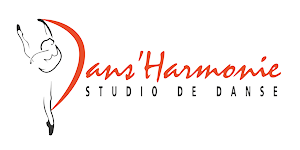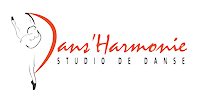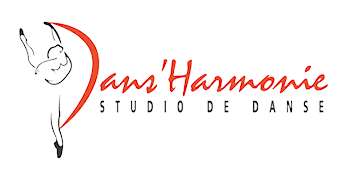Questions about facilities
Our 2 venues are +/- 100 m apart, so Q-Park is the closest and not time-limited (but chargeable) parking.
Tricks: some shops offer free parking for a certain period of time if purchases are made at them. Example: free parking for 90 minutes with a minimum purchase of €20 at Carrefour
So, there is also the Brico parking for its customers.
Besides that, there are also blue zones for parking in several neighbouring streets (both on the Ixelles commune towards Avenue Louise and on the Uccle commune).
Questions about courses
We ask that each child has a school tunic (with a specific model and colour).
This is a kind of uniform that fulfils 3 objectives: aesthetic harmonisation of students in a class, avoiding having inappropriate outfits for dance and avoiding opportunities for comparisons on the brands and origins of tunics worn.
We normally have at the beginning of each semester (and in limited stock for the rest of the year) all the tunics that students are required to wear.
You can buy one from us from your child's first class but we expect to allow about 1 month to get "in order", so as not to accumulate all the costs in one period.
Otherwise, for the trial class, a gym shirt or a simple "leggings - tee-shirt" combination will do very well ;-).
We sell slippers (half shoes) and tights for parents who don't feel like going to a special dance shop but this is completely optional.
For a trial, barefoot or in socks is also fine.
In principle, yes, of course!
First of all, it is necessary to distinguish between 2 different situations: the courses organised for children and young people that the Studio organises and the adult courses (except for the adult contemporary dance course) which are organised by the teachers themselves.
For the children/youth classes (ballet, contemporary, Jazz and Hip-hop) and the adult contemporary dance classes, we automatically allow you to come and try one (or 2 if really necessary) class. This one is free and without commitment.
For adult classes, each teacher is autonomous in their decisions and some allow the free trial class (e.g. for adult ballet classes), others charge for the trial class at a reduced price, others charge for the trial class at the price of one session but deduct it from the purchase of a 10 class card,...
This is one of the reasons why we invite you to fill in the pre-registration form / contact with the teacher(s) to obtain all the information specific to a course if it is not already specified on the page of the discipline
The age we mention is indicative as one child is not the other in terms of maturity and concentration. What matters most to us is the development of all "our" children and the best way to know if we are on the right track is the trial class.
We need to be mindful of individual development and also the development of the group.
We gladly accept children between 3 and 4 years old as long as we respect this view together.
Yes, of course!
It all depends on the objective you are looking for: it is probably rare to find great professional dancers who started dancing at 12 years old
In our Studio, we will advise you case by case, taking into account 3 parameters:
- the age of your child in relation to the average age of the group
.
- the experience and acquisition of the basics; if your child starts at 12 years old, for example, it will be quite difficult to include him/her in a group that has already been doing pointe classes for 1 or 2 years but perhaps he/she can spend a few months in a class without pointe to learn the basics of ballet
.
- the development of your child; this is a crucial criterion because a class that is too easy will bore him/her and one that is too difficult will discourage him/her.
We recommend that you choose a class that is too easy for your child.
In any case, we recommend a dialogue between our team and the parents to find the formula that is the most adapted and personalized for the children/youth who want to dance with us ;-)
Classical dance includes a rigour and learning that then serves many other types of dance
It's a bit like the comparative image of music theory versus the musical instrument even though there are great musicians who are not basically trained in music theory.
We know that the rather repetitive and rigorous side of classical dance is less attractive than Hip-hop or Jazz.
To encourage young people to accept training working on the basics, the other disciplines are only offered a little later (6 years old for Breakdance, 7 years old for Hip-hop, 8 years old for Jazz and 10 years old for contemporary dance).
Questions about course fees
On each of the pages dedicated to the different dance disciplines, you will find a section
either "Prices" (for all children's classes and adult classical or contemporary dance classes)
or "Prices & enrolment" for the other disciplines.
For your information, we operate with 2 modes.
For all classes concerning children and teenagers (Classical, contemporary, hip-hop, jazz and breakdance) are organised and managed by the Studio. To these classes, we must add the contemporary dance classes for adults.All these courses operate with half-yearly fees (from the beginning of September until the end of January & from the beginning of February until the end of June).
The amount is set according to the number of classes per week within these disciplines.
For all other courses (which only concern courses for adults), the organisation and management is done by the teachers themselves: it is they who set their programme and price plan and manage the registrations (without direct intervention from the Studio managers).
Some teachers choose the system of cards of 10 (or more) classes, others by trimester, others by class,... with different rates.
Therefore, it is not possible to obtain special financial conditions by combining several disciplines, neither between modes nor within the second mode.
In answer to your question as to whether the half-yearly fees should be paid in one go or monthly, we would like to say that we want to act with mutual respect and trust.
In order to be fair to all our students, there are no individualised prices, except that we give an advantage to children of the same sibling (even if they are blended) with a 10% or 20% reduction on the lowest fee for the same family.
However, we take into account the situation of each family and our flexibility lies in the payment schedule.
As a general rule, we request that fees be paid in full at the beginning of the month following the period concerned (e.g. fees due at the beginning of the school year in September can be paid at the beginning of October). If this poses a problem, we request that a dialogue takes place between us to establish a different formula: payment in 3 or 4 instalments +/- determined or another arrangement.
Questions about the organisation of the school
Yes, of course!
We appreciate motivated students ;-)
For organisational reasons, we ask that the timetable your child has been registered for remains the main timetable.
However, if for any reason (illness, family holiday, professional impediment, ...), he/she could not attend his/her usual class, we will gladly welcome him/her to another class of the same level the same week or a week before/after.
Thank you for letting us know by email!
We are well aware that the combination of work/activities of one's (and often one's) child(ren) is not always easy.
As long as the situation is within the framework of mutual respect, we accept children (and parents) who do the best they can to limit these delays.
Questions regarding administrative aspects
For information, a distinction must be made between classes organised by the Studio and those run by the teachers themselves.
Courses for all children/youth + those for adults in classical and contemporary dance (for historical reasons) are in principle covered by a complementary insurance in "Sports Accidents". By filling in the form properly, we can fill in the administrative form that gives you this benefit.
The organisers of these classes are at the same time the co-founders of Studio Dans'Harmonie.
For all the other courses (with the adult public), it is the teachers who manage quite autonomously both the programme, the calendar, the registrations and the pricing plan.
By filling in the form (present on each page of the different disciplines), this allows them to receive your contact details and any questions you may have ... and therefore to answer them directly.
As explained in the previous question, this will depend on the course.
Normally, prices are displayed on each of the different discipline pages.
For all courses organised and run by the Studio, the main formula is that of half-yearly fees (covering the periods from September to the end of January and February to the end of June).
An exception is made for adult ballet classes which work with cards of 10 classes
For all other classes, prices and packages vary although the average is around 10€/hour per person.
Some classes work by term, some by 10 class card and some by class.
This applies to all children/youth + adult contemporary dance classes
The objective pursued in our Studio with regard to the deposit is to accompany the application for enrolment with a concrete and binding gesture.
As we have to turn away students from a certain period for many of our classes, we need to know that those who have been enrolled honestly intend to take the classes (even if the final decision depends on one or two successful trial classes).
Wherever possible and in this spirit, we ask you to pay a deposit
- of €60 for registrations for the 1rst semester
- of €50 for registration for courses
This applies to all children/youth + adult contemporary dance classes
In general, pre-registration is done several months/weeks before the first trial class. A deposit is required at this stage (see the question "Why do you need to pay a deposit").
If the trial lesson should not be conclusive and you notify us by email within 10 days of the trial that you do not wish to enrol your child, the deposit will be refunded in full as soon as possible
If this email occurs between the 11th day and the 30th day, the deposit is refunded to you at 50%.
After the month following the trial class, without any news in writing from you, the deposit is no longer refunded (as we have lost opportunities to accommodate other waiting children by unnecessarily holding a place for your child).
This concerns all children/youth + adult contemporary dance classes
Outside of the first registrations with trial class (see question "Compatibility between deposit and trial class?"), we take into account 2 situations:
- De-registration before the 1st effective class: we will analyse the reasons for this withdrawal and find an arrangement with you as far as possible. Without an agreement, however, we remain entitled to retain 50% of the deposit
- For a withdrawal during the semester: we will refund you at your request in proportion to the number of courses remaining in the semester minus the 60€ deposit
Mainly at the beginning of the semester, many new students come for a trial lesson (during the first 3 to 4 weeks in majority). During this period, our priority is to allow you to see if your child has been able to tame his new environment, his teacher, his group and... the chosen discipline.
The question of membership fees only arises when all of this is "well underway."
All parents of new students must have received clarification about the payment of the membership fee during this phase.
All other parents know that a subscription fee must be paid at the beginning of each semester and many comply naturally without having received an invoice.
If clarification of the amount is required, we will respond without delay.
We send an individual letter with a small memo about paying the fee when about 1.5-2 months into the semester we have not seen a payment (or the balance is not met).
From that point on, we start to track late payments more rigorously.
This applies to all children's/youth courses, but with certain restrictions: only for children under 14 years of age and whose dependent parent is under the Belgian tax system
The procedure for obtaining it is strict (imposed by the Administration):
- On or about 15 January each year, all parents of children who attended a regular course and/or a camp in the calendar year that has just ended receive an e-mail with a link to a compulsory form that must be completed if they wish to benefit from a tax certificate;
- The Studio may only send one file and must do so by a deadline varying between 16 and 24 February depending on the year;
- The Studio is obliged (until further notice) to provide written proof (PDF) of the declaration (sent individually by email between 01 April and 31 May);
What happens in the event of late submissions?
- No action is taken by the Studio until the form has been duly completed;
- The manual process represents a significant (and avoidable) amount of work. It is likely to be invoiced at €30/attestation.
- The Studio can in no way guarantee the success of the request (being the responsibility of the Administration);
- The deadlines for the late procedure are much longer: the PDF attestation is sent during the month of June
To our knowledge, yes! (even if the conditions and amounts differ from each other).
There are 2 kinds of reimbursements from mutual insurance companies: 1 for a physical activity (a course, a training course,...) and 1 for training courses & camps. In both cases, you have to get the documents.
The first one is for a physical activity (a course, a training course,...) and the second one is for training courses & camps.
As far as the physical activity is concerned, the procedure is quite simple: you need to take a form from your mutual insurance company (some mutual insurance companies allow you to download it via their respective application), put a sticker on it and give it to us. We fill it in and give it to you to return to your mutual insurance company.
The procedure is quite simple.
As far as internships are concerned, the procedure is identical
.For information, reimbursements are based on the calendar year (+/- 50 € depending on the mutual insurance).
Example: if you have not claimed any in 2020, it is not too late (as far as we know, some mutuelles allow you to go back up to 2 years). In this case, give us 2 forms with vignettes; we can fill them in for 2020 and 2021 if necessary.
For other conditions, please contact us.
For other conditions, please ask your mutual insurance company.



